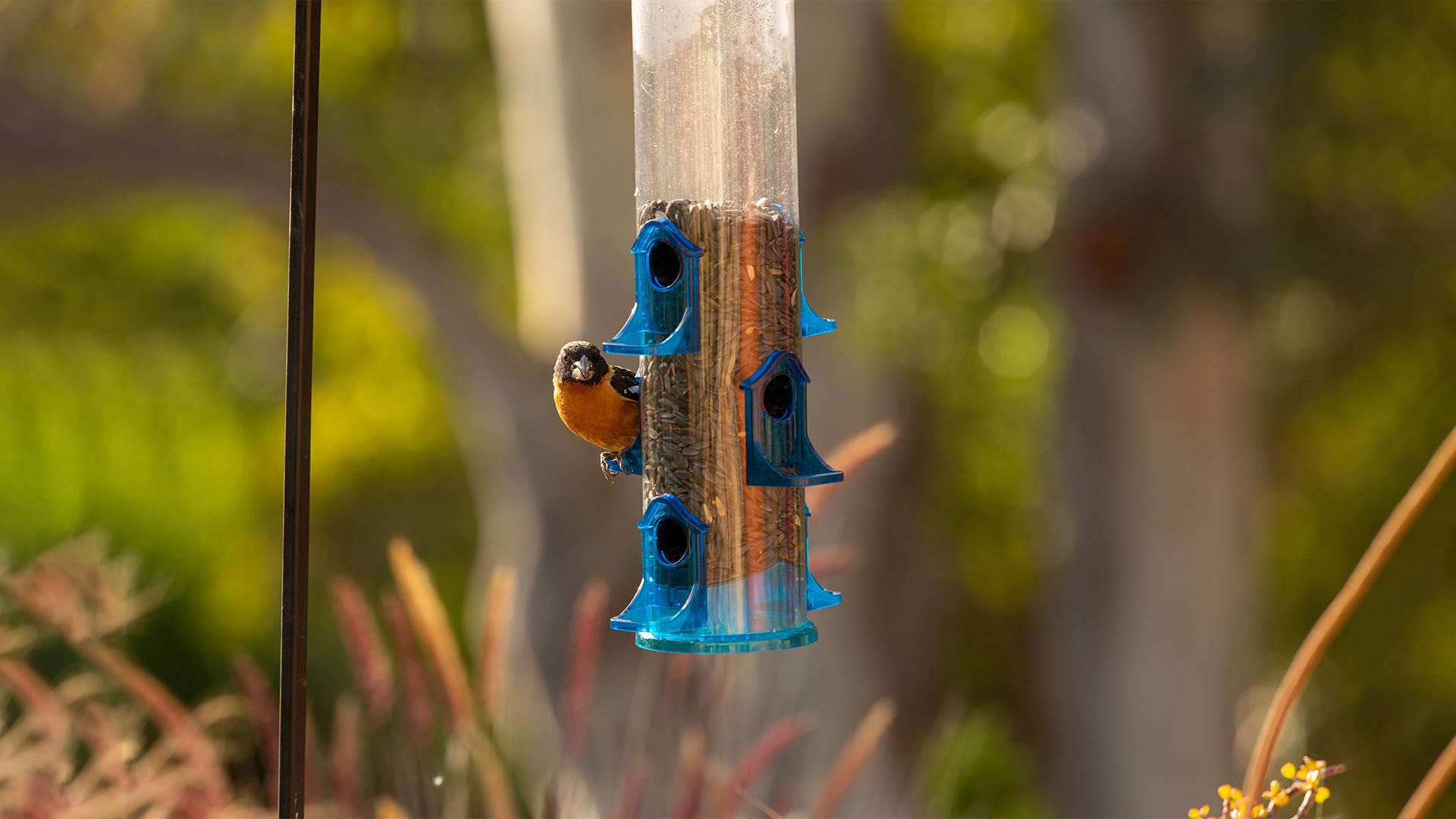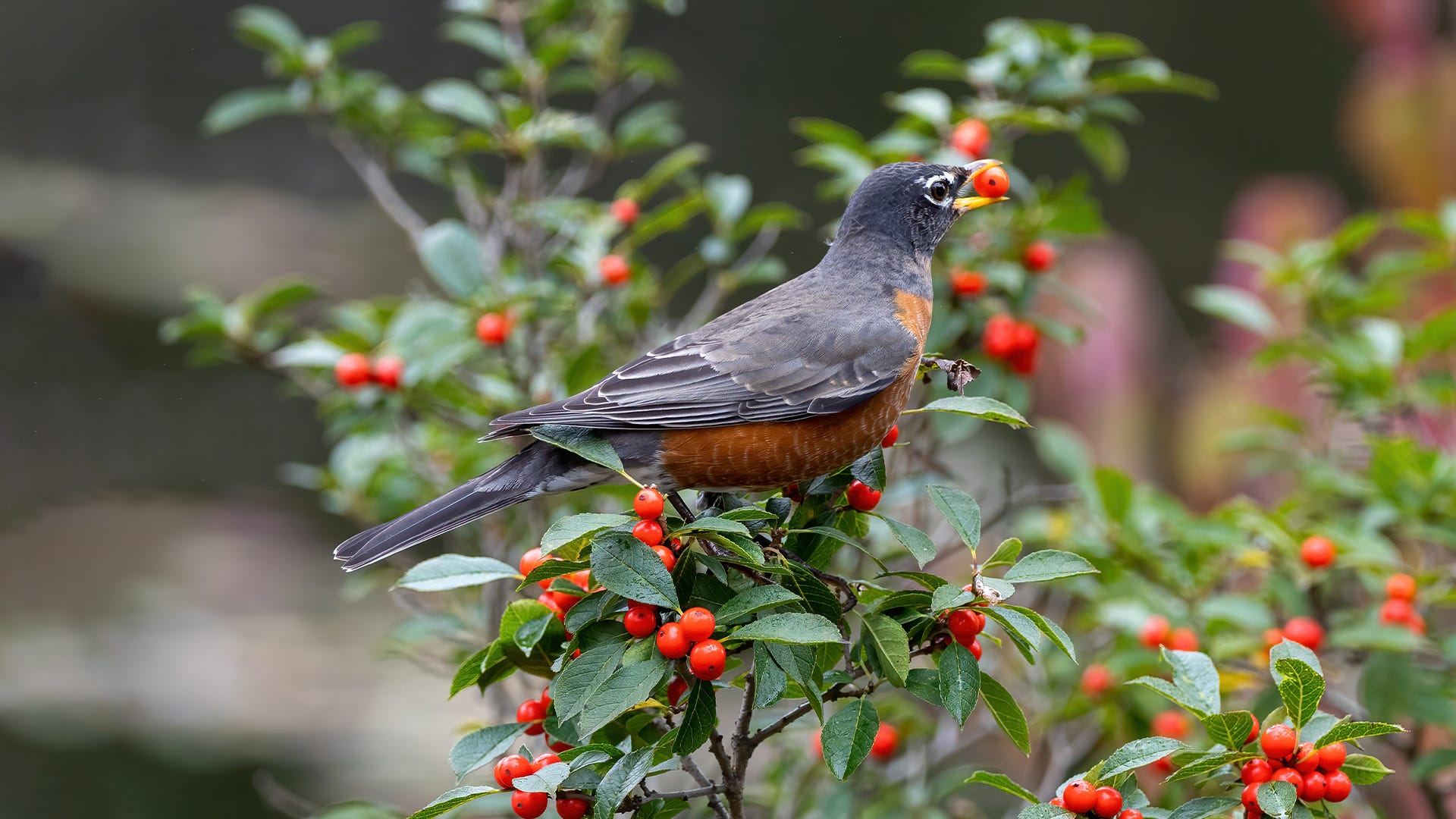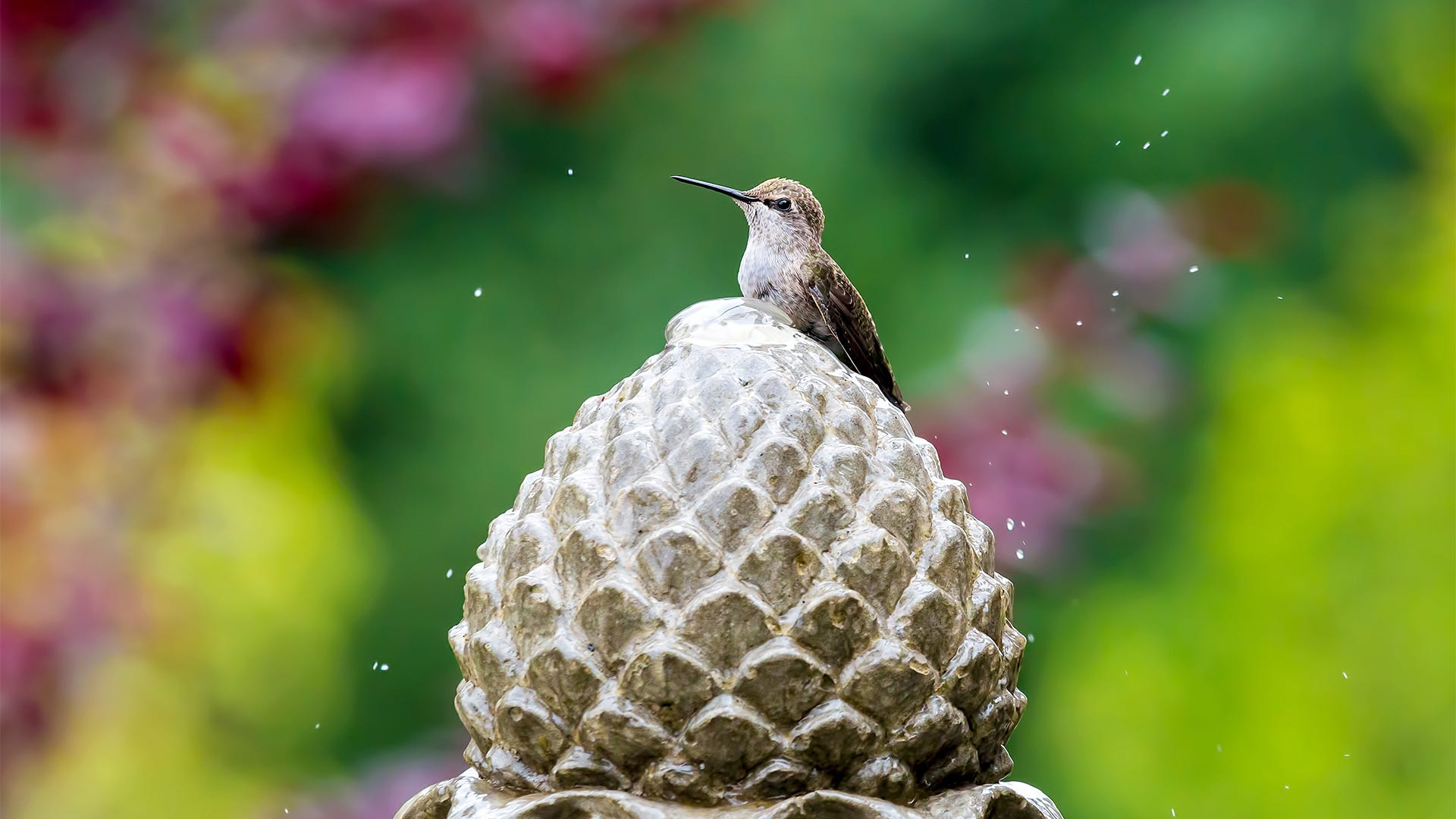
The arrival of spring hummingbirds is greatly anticipated by many birders, and putting out the first hummingbird feeder of the season is always exciting. There are many steps you can take to get your yard ready for hummingbirds. The more prepared you are, the more hummingbirds you will welcome!
When Hummingbirds Arrive
Exactly when hummingbirds will arrive in your yard depends on several considerations. While the angle of the sun and the lengthening amount of sunlight each day is one of the biggest driving forces behind bird migration, other factors can influence the exact timing of hummingbird travels.
- Local storms and air currents from low- and high-pressure systems, late winter blizzards and other climatic events can alter a hummingbird’s speed.
- The availability of blooming plants and adequate food sources influences how quickly hummingbirds may move. If more food is available, the birds will be enticed to travel more quickly.
- Recent changes along their migration route, such as habitat loss or construction developments, can change hummingbirds’ migration and influence the dates of their arrival.
In very southern areas, such as along the Gulf Coast and into Florida, hummingbirds may stay all winter long. They will begin the move to more northern parts of their range in late February to mid-March. In the northernmost parts of their range, these birds may not arrive until late April to mid-May. Many birders keep their own personal journals or calendars to document when hummingbirds arrive and the birds are usually within a few days of that schedule each year.
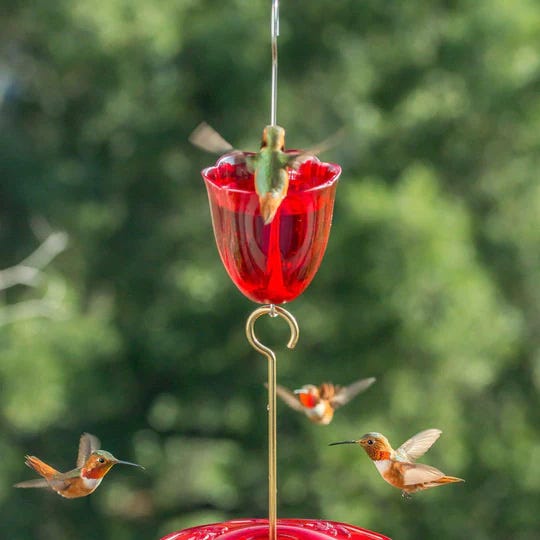
Prepping Your Yard for Spring Hummingbirds
-
Clean Up Early
If you need to clean up winter’s detritus, do this as early as possible in spring so the work is completed before hummingbirds arrive. This may include pruning branches, repairing turf, raking, tilling soil or doing other chores. Not only will this get your yard into shape sooner, but the work won’t disturb hummingbirds or discourage them from staying nearby.
-
Plant Early Bloomers
Early-blooming, nectar-rich flowers provide an essential natural food source for hummingbirds that are hungry from their long journeys. Native plants are best adapted to local climates and will be most easily recognized by the birds. If the weather is too unpredictable for planting, consider containers of flowers that can be moved indoors if needed.
-
Add Extra Red
Even if flowers aren’t quite as prolific as they will be later in the season, extra splashes of red color are sure to attract passing hummingbirds to your yard. Add a red gazing ball to the garden, a colorful spring flag to the porch and red cushions to patio furniture to catch the attention of migrating birds. This will draw them in to investigate your yard.
-
Put Out Feeders
Putting out your nectar feeders is essential to providing nourishment for spring hummingbirds. Ideally, have feeders clean, filled and hung at least one to two weeks before the first hummingbirds are typically noticed in your area. More Birds® Nectar Pods are a great way to quickly get your feeding stations up and running. Plus, they're almost maintenance-free! You will be sure to have early migrants stopping by for a much-needed and appreciated meal.
-
Keep Nectar From Freezing
Even as hummingbirds arrive, some areas can still experience overnight freezes and other cold snaps. Take steps to keep nectar feeders from freezing by moving feeders indoors overnight. You can also use a warm lamp near the feeder outdoors so it is available for any visiting hummingbirds when they might need the extra calories most.
-
Repaint or Decorate Feeders
If your feeders are looking a bit dull or sun-faded, consider repainting them. Outdoor paints or even colorful nail polish are great options for adding bursts of color to the feeders. You can add extra flourishes or embellishments on the glass reservoirs as well. Keep paints away from feeding ports, however, to ensure there is no contamination or danger to the birds.
-
Minimize Pesticides
Hummingbirds eat dozens of insects each day, but if you spray for pests in your yard, you are depriving the birds of essential protein. This is especially critical for nesting hummingbirds, as hummer chicks require abundant protein for healthy growth. Instead, let the birds be your natural pest control with their hearty appetites.
-
Leave Thorny Plants Unpruned
Hummingbirds often prefer to nest in thorny plants that provide extra protection from predators. Leaving plants such as rose bushes or thorny shrubs unpruned in the spring will give the birds extra shelter, which is ideal for nesting. If pruning is absolutely necessary, consider leaving one area unpruned or only trim the plants minimally.
-
Add Water to the Yard
While hummingbirds get the bulk of their moisture from the nectar they drink, they will still visit water sources for bathing. A shallow fountain, mister or fine spray is ideal for attracting hummingbirds with water. A dripper can also be poised over broad leaves in order to give these birds wet foliage to rub against when they want a bath.
-
Offer Hummer-Friendly Nesting Material
While birds use a variety of nesting materials, you won’t see hummingbirds carrying sticks, twigs or pine needles to make their nests. Instead, offer soft natural cottons and wools, often available from bird supply stores. You should also leave cobwebs intact around your yard because hummingbirds use the sticky webbing to bind their tiny nests.
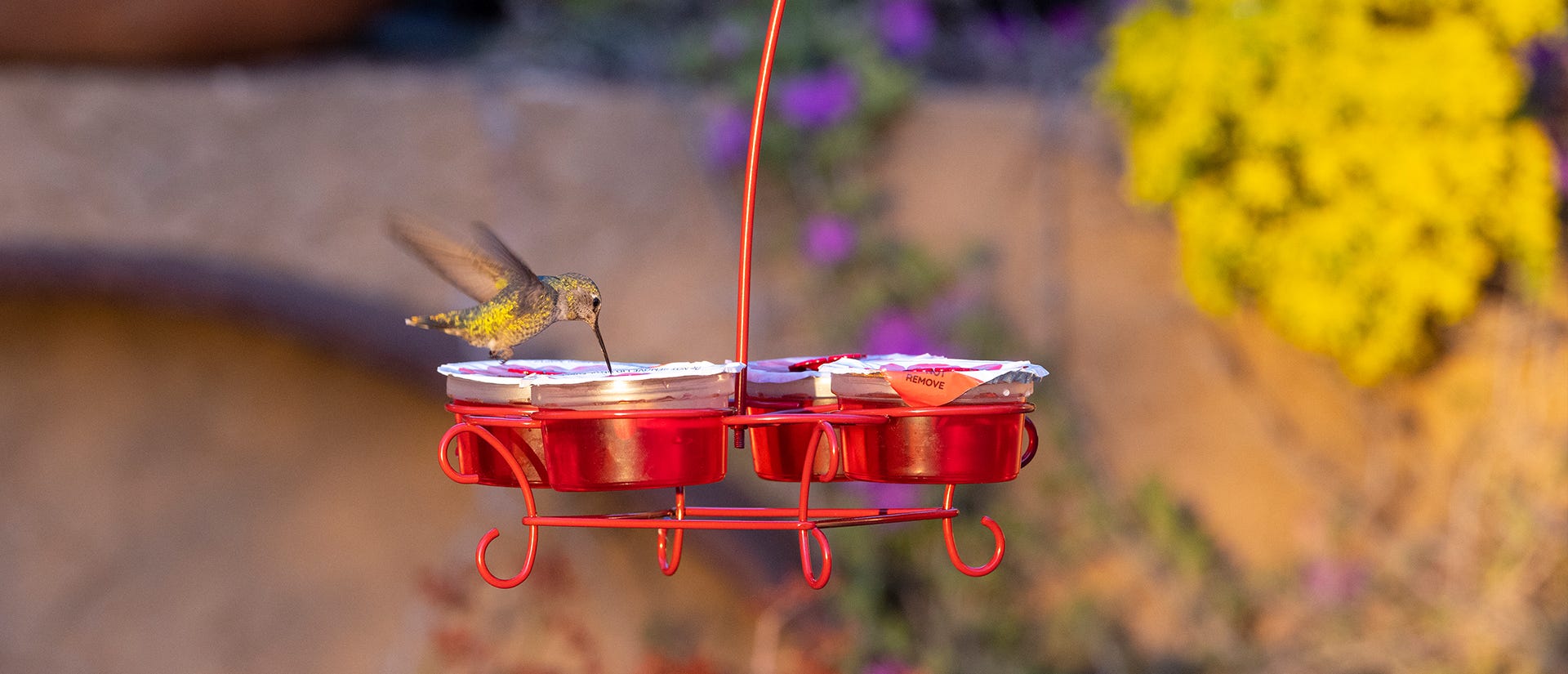
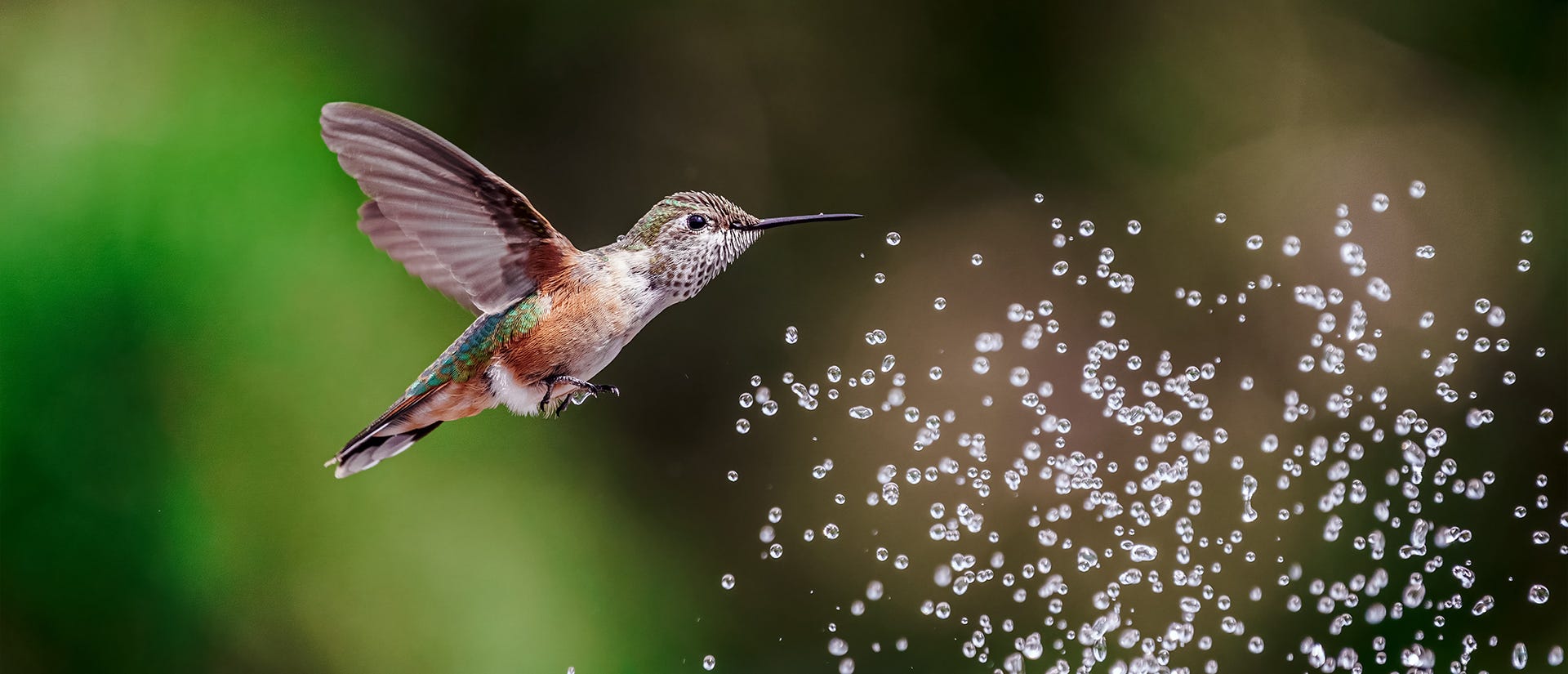
The more welcoming you make your yard, the more hummingbirds you will have visiting, not just in the spring, but all summer long. Take as many steps as possible to get your yard ready for hummingbirds. Before you know it, these flying jewels will be buzzing around everywhere you look!






